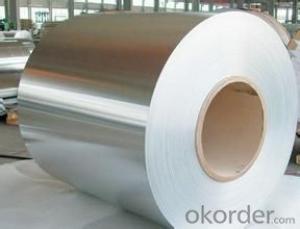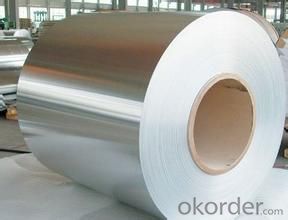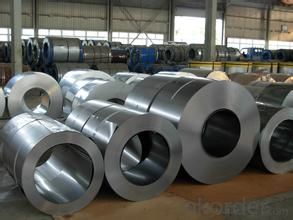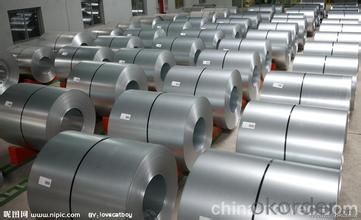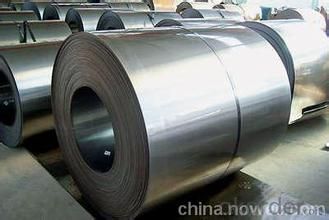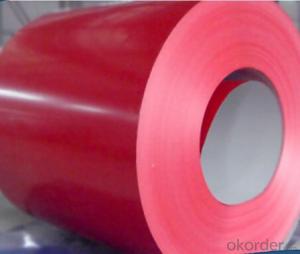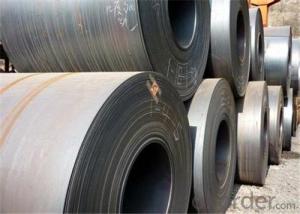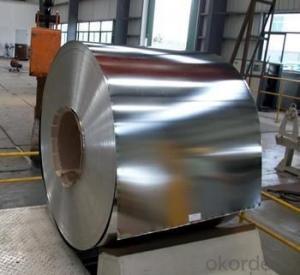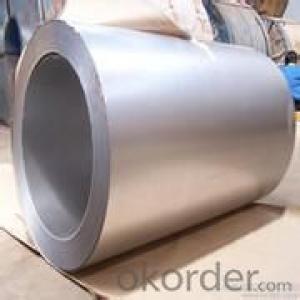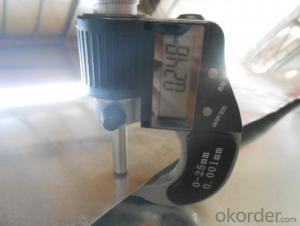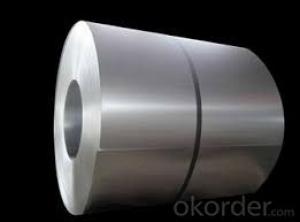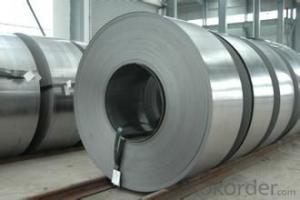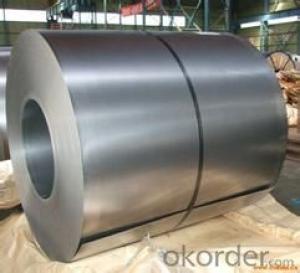Excellent Cold Rolled Steel Coil / Sheet in China SPCCT
- Loading Port:
- Tianjin
- Payment Terms:
- TT OR LC
- Min Order Qty:
- 30 m.t.
- Supply Capability:
- 5000000 m.t./month
OKorder Service Pledge
OKorder Financial Service
You Might Also Like
Description:
The raw material of cold rolled steel coil/sheet is high quality hot rolled product, and after pickling, kinds of new technology and new process of global cold rolling production have been applied. Therefore the manufacturing, home appliance, automobile etc. Quality of the goods could be guaranteed. The finished product has a variety of excellent capabilities, such as continuous rolling, degreasing, annealing, skin pass, slitting and cut to length line etc. Along with it many rocessing capability and smooth, flat surface. It’s widely used in outdoor and interior decoration, furnishing
Specification:
COLD ROLLED STEEL | |
Thicknenss | 0.10mm-4.00mm |
Width | 600mm-2000mm |
Sheets length | 1200-6000mm |
Coil inner diameter | 508-610mm |
Surface treatement | matt finish/bright finish,oiling/dry, bright anneal/black anneal |
Coil weight | 3-5t |
Package & Delivery
Package details: Standardseaworthy packing for international delivery.
Delivery: According to theexact quantity of your order.
Images:
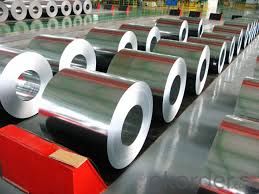
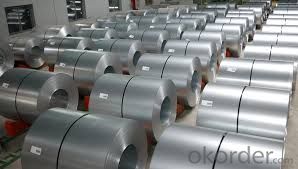
Quality of the goods could be guaranteed. The finished product has a variety of excellent capabilities, such as continuous rolling, degreasing, annealing, skin pass, slitting and cut to length line etc. Along with it many rocessing capability and smooth, flat surface. It’s widely used in outdoor and interior decoration, furnishing
- Q: what happened to all the steel beams from the WTC buildings? did anyone do any forensic analysisof any of the steel?
- Some of the steel was recycled for sale to other countries where they aren't so picky about reusing building materials. NIST had 200 pieces of the steel for their investigation, which they returned last year. This was covered in the press. The rest of the steel was held at JFK international airport's Hangar 17. Much of it will be placed/has been placed in the new museum beneath the Memorial at the WTC site. Thousands of pieces are being given out for 9/11 memorials all over the world. Just about every day you read in the newspaper about another piece going here or there to this city or that city. Yes, a lot of the steel was tested for a number of chemical compounds. It had to be for safety reasons before storing it and giving it out. Depending upon what countries the recycled beams were sent to and their rules, it was sometimes tested at the ports of entry over there, as well.
- Q: How are steel coils used in the manufacturing of engine mounts?
- Steel coils are used in the manufacturing of engine mounts to provide structural support and absorb vibrations generated by the engine. The coils are designed to provide tension and flexibility, allowing the engine to be securely mounted while minimizing the transmission of vibrations to the rest of the vehicle.
- Q: Also, what is the top best slow cooker that is 100% stainless steel? Thank you!
- My SS pans are Prestige.
- Q: What are the different methods of steel coil surface cleaning?
- Some of the different methods of steel coil surface cleaning include pickling, shot blasting, and chemical cleaning. Pickling involves immersing the steel coil in an acid solution to remove oxides and scales. Shot blasting uses high-speed particles to remove rust, scale, and paint from the surface. Chemical cleaning involves using specialty chemicals to dissolve contaminants and restore the steel coil's surface.
- Q: can steel boil and turn into a gaseous state?? if so how hot does it have to be for it to boil
- well what for yo? melting point of steel is 800 degrees, oxidation being 1400 degrees.
- Q: How are steel coils used in automotive manufacturing?
- Steel coils are used in automotive manufacturing to produce various components and parts such as body panels, chassis, doors, and other structural parts. The coils are processed through different techniques like cutting, stamping, and welding to shape them into the desired form. This allows for the production of strong and durable automotive parts, ensuring the safety and reliability of vehicles.
- Q: How do steel coil manufacturers handle custom orders?
- Custom orders for steel coils are handled by manufacturers through a methodical process. They begin by comprehending the specific requirements of the customer and engaging in detailed communication to gather information. This includes dimensions, tolerances, and other special needs. Manufacturers may offer technical expertise to ensure the feasibility of the custom order. Once the requirements are clarified, manufacturers proceed with designing and engineering the custom steel coils. Advanced software and engineering tools are utilized to create detailed designs and specifications that cater to the customer's unique needs. Prototypes or samples may be created for the customer's approval before full-scale production. After the design phase, manufacturers initiate the production process by sourcing the appropriate raw materials, such as steel coils with the desired composition and thickness. The coils undergo various manufacturing stages, including cutting, shaping, and forming, to achieve the desired dimensions and shapes. Specialized equipment and machinery guarantee precision and accuracy throughout the production process. Quality control plays a crucial role in handling custom orders. Manufacturers conduct thorough inspections and testing procedures at different stages of production to ensure that the custom coils meet the customer's specifications and industry standards. This involves checking for dimensional accuracy, surface finish, mechanical properties, and other specific requirements. Third-party inspection agencies may be involved, and manufacturers may provide customers with test reports and certifications to ensure quality assurance. Lastly, once the custom steel coils are manufactured and pass all quality checks, they are meticulously packaged and delivered to the customer. Manufacturers ensure proper packaging and shipping methods to prevent damage during transit and ensure the coils reach the customer in optimal condition. In summary, steel coil manufacturers handle custom orders by collaborating closely with customers, designing and engineering specialized coils, maintaining quality control throughout the production process, and delivering the custom coils to the customer's satisfaction. This systematic approach enables manufacturers to meet the unique requirements of each customer and provide high-quality custom steel coils.
- Q: What are the different types of steel grades used for coil production?
- There are various types of steel grades used for coil production, including carbon steel, stainless steel, high-strength low-alloy (HSLA) steel, and advanced high-strength steel (AHSS). Each grade has its own unique properties and is chosen based on the specific requirements of the application.
- Q: How do steel coils contribute to strength and durability in manufacturing?
- Steel coils contribute to strength and durability in manufacturing in several ways. Firstly, steel is an inherently strong material due to its high tensile strength, which allows it to withstand heavy loads and resist deformation. When steel is coiled, it undergoes a process called hot rolling or cold rolling, which further enhances its strength and durability. During hot rolling, the steel is heated to high temperatures and then passed through a series of rollers, which compress and shape it into a coil. This process aligns the grain structure of the steel, making it more uniform and reducing internal stresses. The result is a stronger and more resilient material that can withstand the rigors of manufacturing processes such as bending, stamping, and forming without losing its structural integrity. Cold rolling, on the other hand, involves passing the steel through rollers at room temperature. This process not only increases the strength and hardness of the steel but also improves its surface finish. Cold-rolled steel coils are known for their smooth and uniform appearance, making them ideal for applications where aesthetics are important. Furthermore, steel coils can be coated with various protective layers to enhance their durability. These coatings, such as zinc or polymer-based coatings, act as barriers against corrosion, moisture, and other environmental factors that can weaken the steel. By preventing rust and degradation, these coatings extend the lifespan of steel coils and the products they are used in, making them more durable and cost-effective in the long run. In summary, steel coils contribute to strength and durability in manufacturing by providing a strong and resilient material that can withstand heavy loads and resist deformation. The hot rolling and cold rolling processes further enhance the strength and uniformity of the steel, while protective coatings help to prevent corrosion and extend the lifespan of the coils. Overall, steel coils are essential components in manufacturing that contribute to the strength and durability of a wide range of products.
- Q: What are the common thickness tolerances for steel coils?
- The common thickness tolerances for steel coils usually range from +/- 0.001 to +/- 0.005 inches, depending on the specific industry standards and customer requirements.
Send your message to us
Excellent Cold Rolled Steel Coil / Sheet in China SPCCT
- Loading Port:
- Tianjin
- Payment Terms:
- TT OR LC
- Min Order Qty:
- 30 m.t.
- Supply Capability:
- 5000000 m.t./month
OKorder Service Pledge
OKorder Financial Service
Similar products
Hot products
Hot Searches
Related keywords
